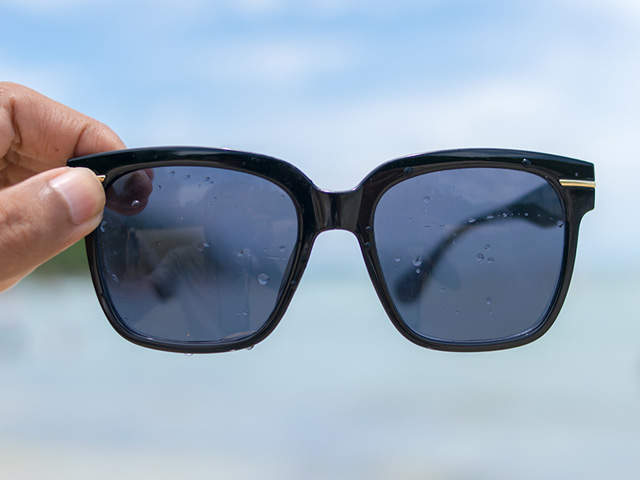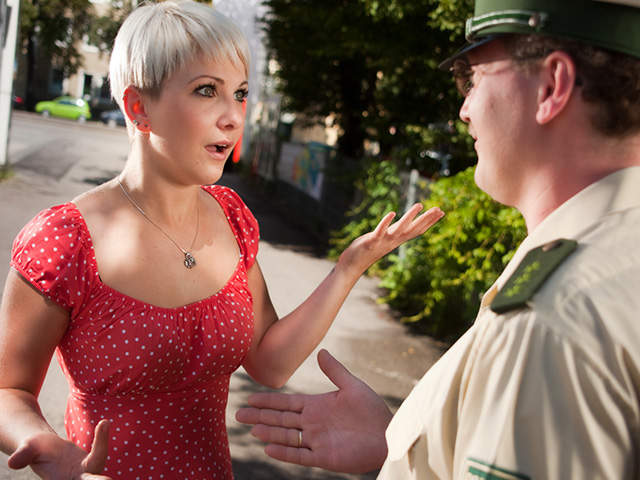Send me a box, send it to me... (B1)
Verbs with two objects (387)
Slovesa se dvěma předměty
Slovesa se dvěma předměty – procvičování:
Na Landigo máme další související lekce:
Let's send John the box. He's waiting for it.
|
send John the box
|
|
send the box to John
|
|
send it to John
|


Slovesa typu SEND, GIVE a LEND můžou mít dva předměty (John, the box). Předměty lze použít s různými slovosledy:
| Bez předložky | S předložkou |
|---|---|
|
send John the box
|
send the box to John
|
Obecně platí, že slovosled bez předložky (send John the box) je běžnější.








V některých případech se obvykle používá pouze slovosled s předložkou:
- CO je vyjádřeno osobním zájmenem (it, them...):
send it to John
send John it - Se slovesy SUGGEST, EXPLAIN, ANSWER...:
suggest a book to John
suggest John a book








Send something to somebody, find something for somebody...
Slovesa se dvěma předměty používáme s předložkou TO (send, give, offer...) nebo FOR (find, order, save...):




Kromě SEND, GIVE, LEND a OFFER používáme předložku TO s dalšími slovesy:
| S předložkou | Bez předložky |
|---|---|
|
Matt told the bad news to everybody.
|
Matt told everybody the bad news.
|
|
You have to write an apology to this man.
|
You have to write this man an apology.
|
|
Have you shown the document to anyone?
|
Have you shown anyone the document?
|
|
She handed her credit card to the criminal.
|
She handed the criminal her credit card.
|
|
We'll sell our house to the highest bidder.
|
We'll sell the highest bidder our house.
|
|
Will you pass that note to Frank?
|
Will you pass Frank that note?
|
|
He promised a road trip to his grandchildren.
|
He promised his grandchildren a road trip.
|
I wish I didn't have to tell this to my parents, but I'm flunking out of college.
|
tell this to my parents
|
|
tell my parents this
|


Could you hand Lucas the phone? It's on his desk.
|
hand Lucas the phone
|
|
hand the phone to Lucas
|


Příklady sloves s předložkou FOR:
| S předložkou | Bez předložky |
|---|---|
|
Did you make drinks for everybody?
|
Did you make everybody drinks?
|
|
Mom saved some leftovers for Rita.
|
Mom saved Rita some leftovers.
|
|
They'll find the information for you.
|
They'll find you the information.
|
|
Don't forget to buy eggs for Mike.
|
Don't forget to buy Mike eggs.
|
|
Please get two doughnuts for us.
|
Please get us two doughnuts.
|
|
Will you bring the towels for them?
|
Will you bring them the towels?
|
|
You should cook something sweet for the boys.
|
You should cook the boys something sweet.
|
|
They booked a table for the whole team.
|
They booked the whole team a table.
|
Remember to buy sunblock for Jane.
|
buy sunblock for Jane
|
|
buy Jane sunblock
|


Why haven't you booked me the ticket? Now I'll pay double the price!
|
book me the ticket
|
|
book the ticket for me
|


Některá slovesa lze použít v závislosti na významu s TO nebo FOR, jako např. READ nebo LEAVE:
|
Grandma, will you read a fairy tale to the children? (= read out loud)
|
Could you read this for us to see if there are any mistakes? (= read to check)
|
|
He left some money to Eric. (= leave in his will)
|
He left some money for Eric on the kitchen table.
|
It's really hot today. Make sure you leave some water out for the dogs.
|
leave some water for the dogs
|
|
leave the dogs some water
|


Send it to John, send it to him...
Pokud je CO se posílá/dává/půjčuje... osobní zájmeno (it, them, you...), používáme běžně slovosled s předložkou:
|
Where is the box? Did you send it to John?
|
|
The keys aren't here. I gave them to Molly.
|
Nikoliv: send John it, gave Molly them
Slovosled s předložkou používáme i v případě, kdy jsou oba předměty vyjádřeny osobním zájmenem:
|
Did you send it to him?
|
|
I gave them to her.
|
Nikoliv: send him it, gave her them
Can I have the sci-fi book back when you finish it? I promised it to Jordan.
|
promise it to Jordan
|
| promise Jordan it |


These jeans are normally very expensive. They sold them to my husband for such a great price.
|
sell them to my husband
|
| sell my husband them |


If you wanted, I could lend it to you for the party.
|
lend it to you
|
| lend you it |


Send him the box...
Pokud je KOMU se posílá/dává/půjčuje... osobní zájmeno (him, her, us...), používáme obvykle slovosled bez předložky:
|
Did you send him the box?
|
|
I gave her the keys.
|
How about you pour me another glass?
| Více běžné: |
pour me another glass
|
| Méně běžné: |
pour another glass for me
|


When we got home, Frankie made us a delicious lunch.
| Více běžné: |
make us lunch
|
| Méně běžné: |
make lunch for us
|


Suggest something to somebody, explain something to somebody...
U sloves SUGGEST, EXPLAIN, ANSWER, DESCRIBE a PROPOSE používáme pouze slovosled s předložkou:
|
We tried to explain everything to him.
|
|
Would you answer all these questions for us?
|
Nikoliv: explain him everything, answer us all these questions
If you don't agree with this deal, why don't you propose some changes to Mr. Cruise?
|
propose some changes to Mr. Cruise
|
| propose Mr. Cruise changes |


Alice was asked to describe the thief to the police.
|
describe the thief to the police
|
| describe the police the thief |


I suggested a much cheaper flight to Daniel. He didn't like it because of two layovers.
|
suggest a flight to Daniel
|
| suggest Daniel a flight |


Slovesa se dvěma předměty – nejdůležitější body:
| send John a box | send a box to John |
| send John it | send it to John |
| send him it | send it to him |
Doporučujeme si procvičit slovesa se dvěma předměty (verbs with two objects) v našich cvičeních.
